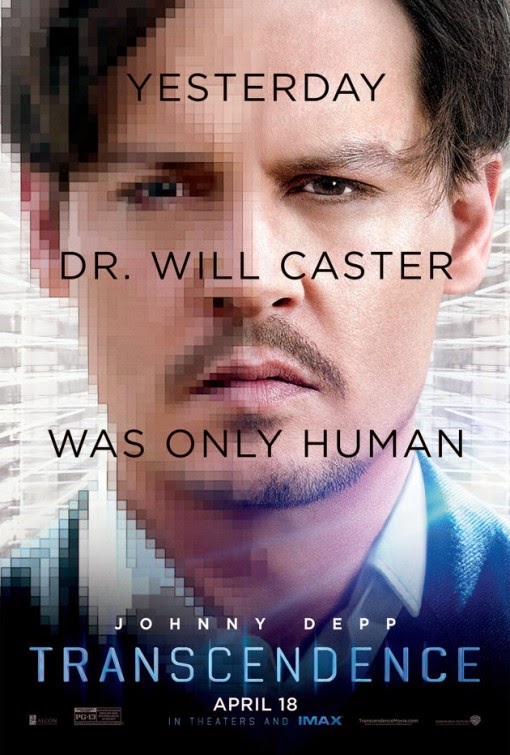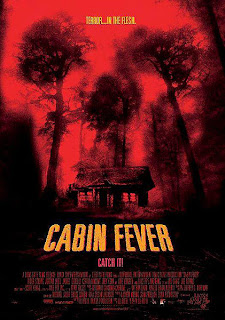Johnny in the Machine: Botched "Transcendence" never lives up to that title
Transcendence (2014)
119 min., rated PG-13.
Several decades ago, "Transcendence" may have been ahead of its time as an intentionally high-minded and zeitgeisty sci-fi thriller. As is, it's an ambitious failure that had megabytes of promise on its side. First and foremost, this marks the directorial debut of Wally Pfister, an ace cinematographer in his own right and filmmaker Christopher Nolan's go-to collaborator since "Memento," and there's a compelling germ of an idea about mankind's relationship with the digital machine and the moral implications science and technology have on society. Unfortunately, somewhere along the way, the film loses its allure, squandering the substance of its "big ideas" and devolving into a muddy, derivative patchwork of "Invasion of the Body Snatchers," "The Lawnmower Man," and Skynet from "Terminator 2: Judgment Day." Either Pfister's vision was compromised or it was never fully realized before the execution stage.
Dr. Will Caster (Johnny Depp) has become a magazine cover-famous expert in artificial intelligence, hoping to change the world with his wife, Evelyn (Rebecca Hall), in their efforts to create the first sentient, self-aware A.I. During the Casters' funding symposium, radical anti-tech terrorist group RIFT strikes computer labs across the country, while Will is shot by a suicidal RIFT member (Lukas Haas). It turns out the bullet was laced with radioactive polonium, so the scientist only has weeks to live. When the poison shuts his system down completely, Will passes away, but Evelyn urges friend and colleague Max Waters (Paul Bettany) to upload Will's consciousness onto a neural network computer. If it worked on a monkey, it can work on a human, right? Max is wise enough to know that the disembodied voice and digitized copy of Will is not really Will, but Evelyn goes off the grid with Will in her ear. For two years, she and the machine version of her husband build a state-of-the-art underground lab in a dumpy California desert town, where they are able to rebuild human tissue and "cure" the disabled. Oh, what will Will do with all that God-like power?
Rebecca Hall does all she can to be the film's heart and soul as Evelyn, but if any chemistry was created between her and Johnny Depp on set, none of that feeling was uploaded to the finished product. We should be able to care about the life and work partnership between Evelyn and Will, but the drama and any emotional connection are sorely lacking. If one is tired of the actor's eccentric sameness, Depp virtually FaceTimes in his disengaged, even dull, performance as a comparatively normal man with a God complex, and that's not just because he soon becomes a creepy face on a monitor. Paul Bettany comes off second best as Max, but getting lost in the time-jumping proceedings, there is no clear transition from when he is kidnapped by Neo-Luddites to when he eventually joins them. A bleached-blonde Kate Mara, as the extremist RIFT leader Bree, is given forearm tats and dark eye-liner to prove she may be "bad." That leaves Morgan Freeman, as lab associate Joseph Tagger, and Cillian Murphy, as FBI Agent Buchanan, begging for something of interest to do in their negligibly underwritten roles.
The talented cast is not at fault, being weighed down by sloppy, two-dimensional storytelling and characters that are so flat and lifeless they might as well all be machines. Some of the dialogue is hokey enough to produce unintended giggles—"You can protect me if you upload me!" and "Upload the virus now!"—and pacing, tension, and imagination leave much to be desired. Considering the director of photography was Jess Hall and not Pfister himself, the 35mm lensing is also pretty dreary, except for some striking imagery of slow-motion raindrops and particles raising from the ground. Even then, the "wow" factor is lessened by the assistance of CGI. On the way out, the viewer will ponder what Christopher Nolan could have done with the same material. Equivalent to the interminable time it takes for a webpage to load and then open up to an Error 404, "Transcendence" is a $100-million turkey that never comes close to living up to its name.
Grade: C -












Comments
Post a Comment